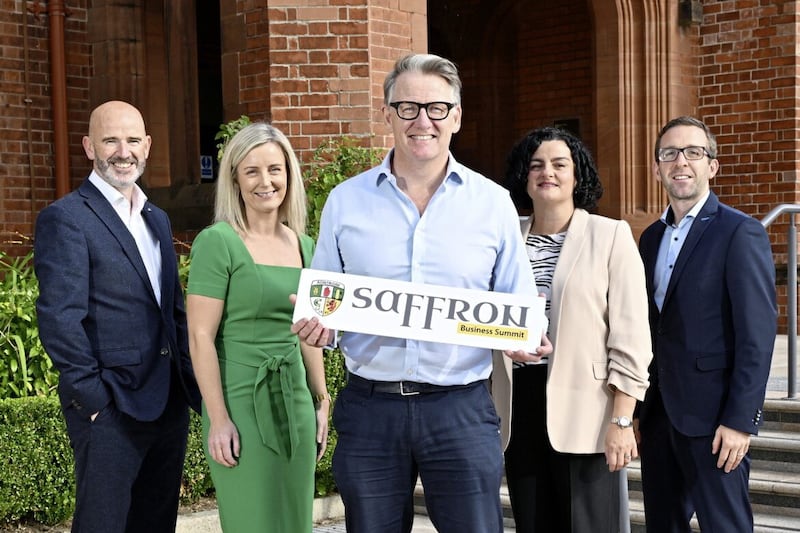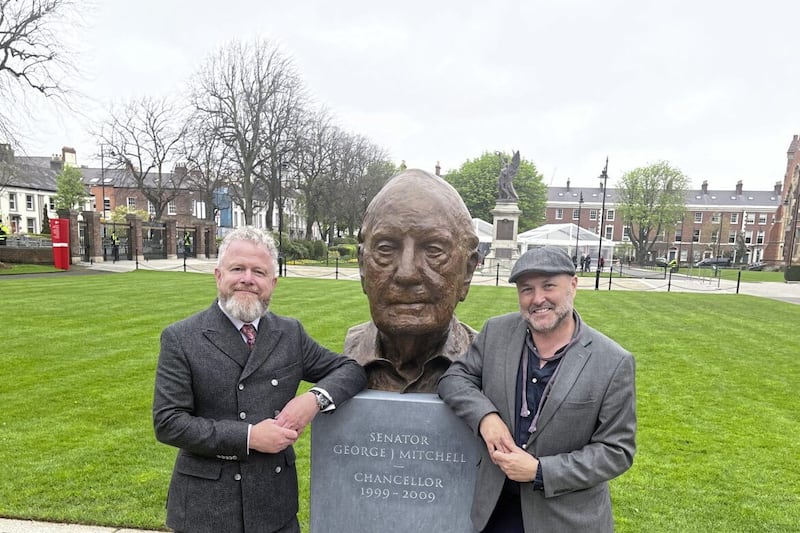THERE are many people who have made excellent and important contributions to the development of Belfast in recent times.
One such person was George Mackey, the former head of the Belfast Regeneration Office and chief executive of the Laganside Corporation. George, who passed away in 2013, was a gentleman, a coalition builder and a quietly effective cajoler of change.
Back in the early 1990s, George encouraged what was then Ewart plc, Northern Ireland’s only stock exchange-listed property company, to start compiling a Belfast city centre site for a comprehensive regeneration scheme.
Barry Gilligan, chief executive of Ewart, got to work and started putting together a site which eventually went into competition with Victoria Square to be Belfast’s next big regeneration scheme.
Ewart was my first proper piece of PR work starting in 1995 and such is the way of these things, I’m still interested and partially involved in the site George spoke of over 20 years later.
Last week, it was announced that the site, best known these days as Royal Exchange, had been purchased by a company called Carisbrooke Investments, a Mayfair-based property company.
It is 14 acres of land with a large overlap into the cathedral quarter, where, on the same day as the Royal Exchange purchase was announced, the start of the ballot for the Destination CQ Business Improvement District or BID was launched.
What is a BID? Well a BID is a very popular and well used method of improving an area through agreed, collective action. Many of the world’s great cities including London and New York have a range of BIDs. Belfast has already voted positively on one, called Belfast One, aimed at promoting the city centre’s retail offer, and if the balloting process goes well, we should have a second, Destination CQ.
There are more than 650 organisations in the Destination CQ area, which includes Smithfield & Union on the west side of Royal Avenue and parts of Laganside as well as the traditional cathedral quarter area.
I’ll not labour the point here but a business plan has been produced and over the next six weeks, those organisations will get the chance to examine the plan and vote on it. After 12 months of consultation and recent pre-ballot discussions with many of the existing ratepayers, it all looks very positive and so, with a fair wind, a BID will be created for the area and a potential £1.7m will be invested in a range of activities over the next five years.
The money comes from a levy paid by those organisations and so they are investing in their own area. That’s the unique and exciting part of what a BID is, it gives organisations a real stake in their area.
The Destination CQ BID priority is to ensure that we attract more visitors and provides them with an exciting and entertaining experience. The practical projects to be developed include options for more markets and artist workspaces, incubating new creative businesses and providing start-up opportunities.
The BID provides a chance to shape regeneration going forward and provides a mechanism for everybody to work together towards the successful delivery of the five year plan.
Finally, it’s thought that the notion of unintended consequences, a theory in social sciences written about most notably in the 1930s by Robert Merton dates back at least to John Locke and the economist, Adam Smith. More recently, the ‘law of unintended consequences’ (if you can call it ‘a law’) has come to be used more as an adage or warning that an intervention in a complex system tends to create unanticipated and often undesirable outcomes.
I was thinking about all of this at the weekend when pondering my subject for today. When I looked it up, I found that the law usually relates to more negative consequences rather than positive ones. Whereas I was thinking about a more constructive outcome (in my view anyway) of why I ended up as chair of the Destination CQ BID and the Cathedral Quarter Trust. For me, it dates back to Barry Gilligan and George Mackey hatching a positive plan for regeneration and me as a young consultant lucky enough to be working on it.
And now, here I am, 20 years later, still based in the area and assisting with its development though I hasten to make clear, not getting paid for it! But that’s more than ok, it’s a great project to volunteer on along with so many others and something which should make a really positive contribution to the oldest and most historic part of Belfast for many years to come. George would be happy with that I suspect.
Further information on Destination CQ and the BID business plan can be downloaded from www.destinationcq.com.
:: Paul McErlean (paul @mcepublicrelations.com) is managing director of MCE Public Relations Ltd
:: Next week: Claire Aiken








